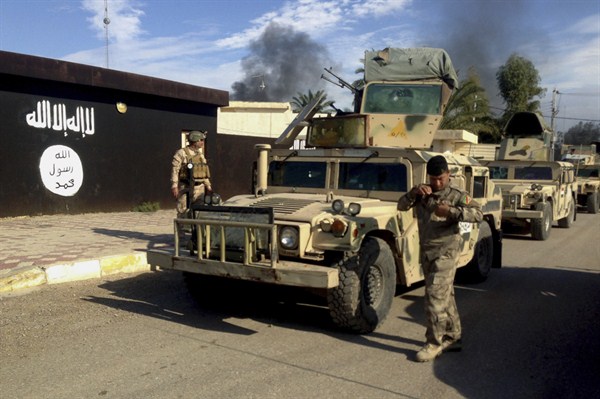Editor’s note: World Politics Review partnered with the Global Dispatches podcast and its host, Mark Leon Goldberg, to present an interview with WPR columnist Steven Metz on the evolving U.S. strategy against the so-called Islamic State.
Critics claim that U.S. President Barack Obama is not “aiming for decisive victory” against the so-called Islamic State (IS), but simply trying to contain the conflict and turn it over to his successor. This charge may be true, but the widespread assumption that it is an error says more about the condition of America’s discourse on global security than about the wisdom of Obama’s approach. What is particularly strange is that containment, which was the bedrock of American grand strategy during the entire course of the Cold War, has become delegitimized. As a result, to accuse a leader of seeking containment of a threat rather than defeating it outright is, in today’s political environment, condemnation.
Those wielding the criticism would benefit from revisiting the recent history of U.S. security policy. As the early opponents of containment pointed out when it took shape in the late 1940s, it is inherently antithetical to the American public’s desire for the speedy resolution of security problems; for clear, decisive outcomes; and for vanquishing evil. Yet in the struggle with global communism, U.S. political leaders were able to quell these instincts and craft a strategy based on the belief that if communism was not allowed to spread, it would eventually decay and collapse.

